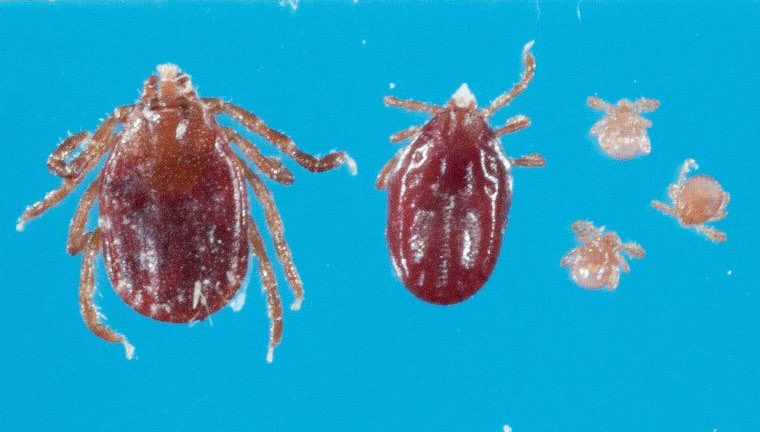A Foreign Tick Species Has Invaded the U.S., Potentially Bringing New Diseases with Them ( courtecy;- From: Country Living US ) Here’s what you need to know about the East Asian tick. By Lyndsey Matthews Apr 25, 2018
A Foreign Tick Species Has Invaded the U.S., Potentially Bringing New Diseases with Them ( courtecy;- From: Country Living US )
Here’s what you need to know about the East Asian tick.
Last August, a species of tick native to East Asia that causes diseases in livestock and humans mysteriously showed up on a farm in New Jersey. Now the New Jersey Department of Agriculture says that the Haemaphysalis longicornis, which is also known as the Longhorned tick or bush tick, has survived the winter and “has possibly become established in the state," according to a news release.
Here’s what you need to know about the East Asian tick.
Nobody Knows How the Tick Ended up in New Jersey
As you’d guess by its name, the East Asian tick is typically found in China, Japan, Korea and Russia. It also is in New Zealand, parts of Australia and a few Pacific Islands, including Fiji, New Caledonia and Western Samoa.
However, health officials discovered that it had invaded the United States last August when a resident of Hunterdon County in western New Jersey brought in samples of the East Asian tick found on their 12-year-old Icelandic sheep to the Hunterdon County Health Department.
The discovery baffled health officials, considering that the sheep, named Hannah, had never traveled outside of the country and hadn’t traveled locally for several years.
"There were no other domestic animals on that property, so it's a really big mystery exactly how it got there," Andrea Egizi, the senior author of a paper on the discovery published last week in the Journal of Medical Entomology, told NPR.
When investigators went to observe the property where the ticks were found last October, they found hundreds of ticks on the sheep and throughout her paddock.
According to the Journal of Medical Entomology article about the tick, “The ticks in the paddock were so numerous that they crawled on investigators’ pants soon after setting foot inside. The sheep was supporting hundreds of ticks, including all three active life stages (larva, nymph, adult).”
They Could Bring a Host of New Diseases to the U.S.
So far, none of the East Asian ticks found in New Jersey have tested positive for disease-causing microbes, health officials say.
But this species of ticks is associated with several diseases that affect humans in the Eastern hemisphere, including the virus that causes Severe Fever with Thrombocytopenia Syndrome (SFTS) in China and Rickettsia japonica, which causes Japanese spotted fever.
According to the CDC, SFTS is an “emerging hemorrhagic fever” that has approximately 1,000 cases reported each year in rural parts of China and has also been diagnosed in South Korea and Japan. Symptoms include fever, thrombocytopenia (low platelet count), leukocytopenia (low white blood cell count) and elevated serum enzyme levels. In severe cases, multi-organ failure has occurred.
How They Could Spread
While single specimens of the East Asian tick have been intercepted on livestock at quarantine stations before, this is the first time the tick has been found on an animal in multiple life stages, which means that the tick had been living in the sheep’s paddock for a while before it was discovered.
Even though measures were taken to kill off the tick population in New Jersey, including treating the sheep with a chemical wash and mowing the grass around the paddock, the fact that they survived the winter is concerning considering that there is evidence that wildlife, including rabbits and deer, live in the area near the Hunterdon County property and could serve as new hosts to the ticks.
How to Spot an East Asian Tick
If you live in the area near where they were found in New Jersey, the nymphs of the East Asian tick resemble “small spiders and are easy to miss,” the Department of Agriculture told NJ.com. “They are dark brown, about the size of a pea when full grown and can be found in tall grasses.”
If you notice any of these ticks on your livestock or pets, call the New Jersey state veterinarian (609) 671-6400. Ticks found on wildlife should be reported to the New Jersey Division of Fish and Wildlife, Bureau of Wildlife Management at (908) 637-4173 ext. 120.
From: Country Living US



মন্তব্যসমূহ
একটি মন্তব্য পোস্ট করুন